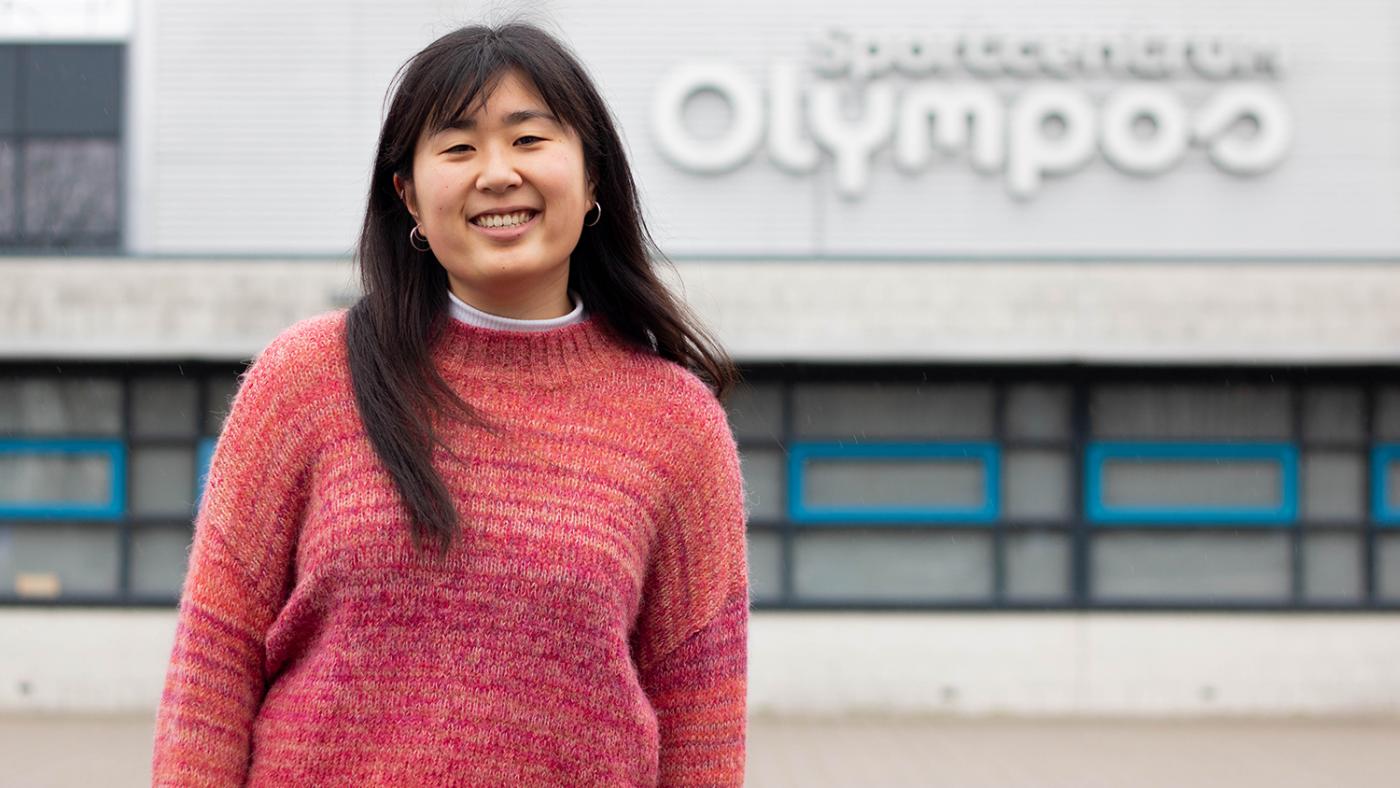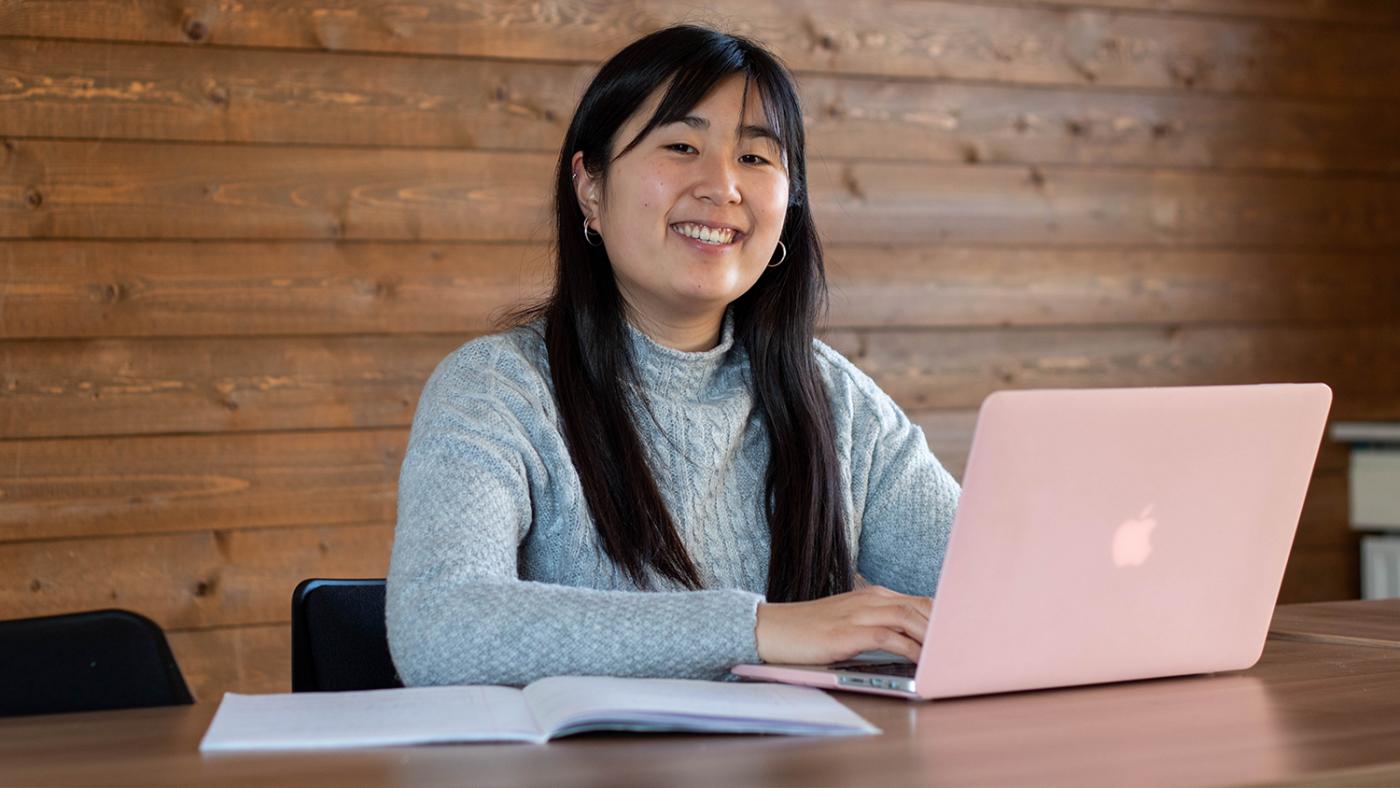Cash-strapped
Spanish student Fiona: ‘My nickname is Food From Home’

Fiona is in the second year of her Master's in Climate Physics. She shares an apartment with her boyfriend, who also comes from Spain, on the busy avenue Amsterdamse Straatweg. Her parents pay for her rent and tuition. "I think it's the same for most international students", she says. "Otherwise, it's simply impossible to come to an expensive country such as the Netherlands." Fiona only has to pay for two things herself: food and plane tickets. She travels back to Barcelona, where her parents live, about three times a year.
“Last year, I kept track of exactly how much money I spent on food, which was about 50 euros a week.” Fiona is quite proud of that, especially because she does her groceries at Albert Heijn. Asked why she doesn't go to a cheaper supermarket, she says: “My mom thinks I should be careful about what I eat. At Albert Heijn, I can be sure that the food is good. I always plan my meals based on what's on sale that week.”
Last year, Fiona lived alone in the Utrecht Science Park but she prefers sharing a flat. “My boyfriend is a great cook”, she giggles. “That's one more reason for my reluctance to eat out: there’s usually a quality meal waiting for me at home. Besides, in Spain, we are used to eating a hot meal twice a day. At home, my boyfriend and I can still do that. I can't complain.”
It comes as no surprise, therefore, that Fiona often takes an elaborate homemade meal to her midday lectures, while her friends pay for their lunch. “That has earned me the nickname 'Food From Home'. I don't mind it. Eating out is simply exorbitant in the Netherlands. In Spain, I used to go to restaurants much more often. I don’t mind doing that there because you really get value for your money.”
Back when Fiona was pursuing her Bachelor's in Physics, she was living with her parents. She had almost no expenditures which enabled her to save a lot of money. She worked as a tutor for a few years and almost all her income went to her savings account. That amounted to about 200 euros per month. Because she is frugal, she has been able to make ends meet in the Netherlands so far thanks to her savings alone.

No financial worries
Although Fiona is aware that she is very frugal, she says she has never had any financial worries in her life. She knows she can count on her parents if she ever gets into trouble but she prefers to take as little money as possible from them. “I really want to become financially independent, so I want to start working as soon as I graduate.”
It must be noted, however, that she does get some valuable contributions from her parents, apart from tuition and rent. She uses their family account for Netflix and Amazon Prime, for example. When Netflix announced that it will soon change its subscription system to only allow people to share passwords if they're using the same Wifi signal, Fiona felt worried. She spent an entire evening binge-watching her favourite series as she is not planning on paying for the subscription herself. "Only if Amazon Prime also adopts such strict measures do I consider having my own subscription. Otherwise, I wouldn't have anything to watch anymore."
Fiona's boyfriend is just as frugal as she is, so there is no conflict regarding her lifestyle choices. “You know, I really just have everything I need”, she cheers. “I have enough clothes, I don't go out, I don't buy games and I don't buy books. It's not that I'm stingy but I just don't want to spend money on nonsensical or unnecessary things.” Fiona also doesn't wear any makeup. The only things she spents more money on than necessary, are shampoo, soap, and other shower products. “They are relatively expensive but, fortunately, they last a long time.”
Another relatively large expense was her subscription to the sports centre Olympos — a must because exercising is a priority for her. Since January, however, she has got a free subscription because she started working there as a sports coordinator for international students. This means she has an income for the first time since moving to the Netherlands. Does that mean she is going to be spending more money? No, she hopes she can start saving again.
Asked why she likes saving money so much, she answers with just one word: security. “You never know what's going to happen in the future. It's always good to have a financial buffer.” She has no intention of using her savings to buy a house any time soon, nor is she planning to make any investments. “You can make money that way but you can also lose it.”
Fiona doesn't think she'll get rich someday. “I will have enough money because I am studying at a good institution but I don’t see myself working a very high-ranking job. Just something average.” If she were to unexpectedly become rich later on, she swears she still wouldn't buy expensive clothes and cars. “The only thing I'd want is a nice country house somewhere in Spain. I would give lots of money to my family, I'm practical like that.”

Expenses:
Rent: 720 euros (per person), all-inclusive
Food: 200 euros (per person) a month
Phone subscription: 25 euros a month
Public transport: 15 euros a month
Shower products: 20 euros a month
Plane tickets: approximately 50 euros a month
Tuition: 167 euros a month
Study-related costs: 15 euros a month
Income:
Rent contribution from her parents: 720 euros a month
Tuition contribution from her parents: 182 euros a month
Salary from Olympos (since January): 600 euros a month
The money she saved before coming to Utrecht.